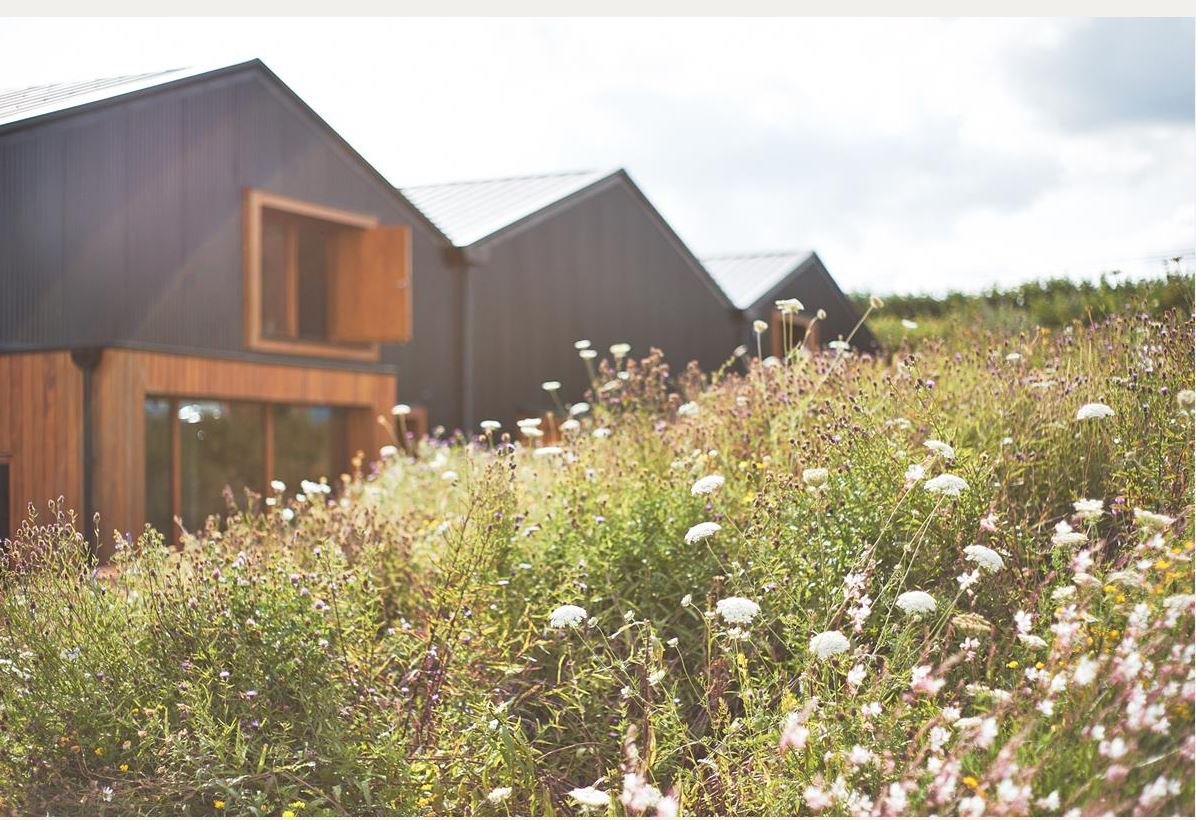Somerset success story
Modus founder Jon Powell tells Planted about the origin of his B-Corp business and their future plans to expand sustainably
April 2024
By Sam Peters, Planted Co-Founder
The saying goes that the path to success is never a straight one.
For Jon Powell and Ed Richardson, friends since their schooldays and co-founders of Somerset-based furniture manufacturers modus, there have certainly been a few bends along the road to where they find themselves today.
In 2000, at the height of the ‘Cool Britannia movement’, the pair set about creating a British design brand ‘with a European feel’, with a plan to develop a strong product portfolio to rival the leading Italian and international design houses of the day.
‘We were bold and pretty ambitious,’ says Powell.
Initially, Powell and Richardson imagined working exclusively with British designers, with Modus’ first product collection designed by Simon Pengelly, and they achieved widespread critical acclaim, although commercial success proved harder to come by.
Powell picks up the story; ‘At the very beginning we started working solely with British designers.
‘We had this kind of Britpop, Cool Britannia thing going on and wanted to ride that wave. It was great fun and we received plenty of plaudits for what we were trying to do.
‘We won numerous design awards but there wasn’t enough focus on the product offering and it we probably lacked commercial focus.
‘When Established & Sons launched in 2005, also promoting British design and manufacturing, we decided we needed to pivot and differentiate ourselves by working with international designers, which also happened to fit with our ambition to create a European feel to the brand.’
While the accolades were welcome in the early days it has been, according to Powell, only in the past decade that modus, which now employs over 60 people at the Somerset HQ alone, have settled on their direction of travel.
‘Once we established we were a workplace focussed brand we were a workplace brand and sustainability was our main driver the business really began to grow. We started thinking about, putting in to practice and messaging about sustainability before most brands had even thought about it back in 2014. Between 2016 and 2019 sustainability became one of the key pillars in the business.
‘Then COVID hit and we saw radical changes to the workplace. Offices became hybrid and the demand for collaborative and agile spaces skyrocketed.
‘We were perfectly positioned to leverage that change in working patterns, offering a softer, more domestic feel to workplace furniture – seating, collaborative, creative meeting spaces.’
In early March this year modus, now firmly as established among the UK’s foremost contract office furniture providers, announced a new partnership with Canadian furniture giant, Teknion.
The deal is designed in part to facilitate a more sustainable move for modus into new markets in North America, while achieving a similar ambition for Teknion in Europe, Asia and the Middle East, with the two brands set to utilise Modus’ s manufacturing facilities.
Both culturally and commercially, it feels like an excellent fit for both brands.
‘Our organisations both embody an entrepreneurial spirit and extensive experience collaborating with world-leading designers,’ Richardson says. ‘Our commitment to independence, sustainability, and prioritising people within our work culture forms the cornerstone of our partnership.’
Powell agrees.
‘The partnership with Teknion feels like perfect timing. The investment supports modus’ international growth plans and expands Teknion’s portfolio of social and collaborative products.
‘The partnership unites two brands each with a distinct design heritage and strong sustainability drive.’
Always one for getting ahead of the curve, Powell was one of the founders of the much-admired designjunction event in London, which ran from 2011 to 2019. The event showcased cutting-edge design in raw industrial spaces and was run by a collective including Powell and modus’ art director, British designer, Michael Sodeau.
And that spirit of entrepreneurship was part of the attraction for Powell and Richardson in partnering with Teknion, another family run business with a focus on sustainable manufacturing processes and social responsibility.
A tour around modus’ Somerset factory confirms they are not only talking the talk when it comes to sustainable practice but are also walking the walk.
They have reduced both scope 1 and scope 2 emissions by 51% since their baseline year in 2017 while all timber used in production is sustainably sourced and products are designed to have the lowest impacts.
Outside, there is a concerted attempt to encourage local wildlife with considered planting schemes and a wildflower bank which is hand scythed each autumn to minimise the impact on local insect life.
‘It’s not just about the habitats from which we source our timber, we want to look after the biodiversity that’s right on our doorstep too,’ explains head of sustainability, Lucy Crane.
Just like Modus, Teknion too appear in rude health and with the brands’ London showrooms within skipping distance in Clerkenwell, they are planning a natural collaboration for Clerkenwell Design Week.
Modus will be hosting a pop-up factory and installation in the Teknion showroom showcasing Maluma, a seating system by Claesson Koivisto Rune that is designed for disassembly.
Visitors will be able to see a changing installation of the seating system as Maluma is manufactured and disassembled to demonstrate the circular approach to design. Visitors who visit both showrooms can win a Maluma in a Luum fabric of their choice.
Ends
For more information visit www.modusfurniture.co.uk or Modus showroom during Clerkenwell Design Week 21 - 23 May 2024.





